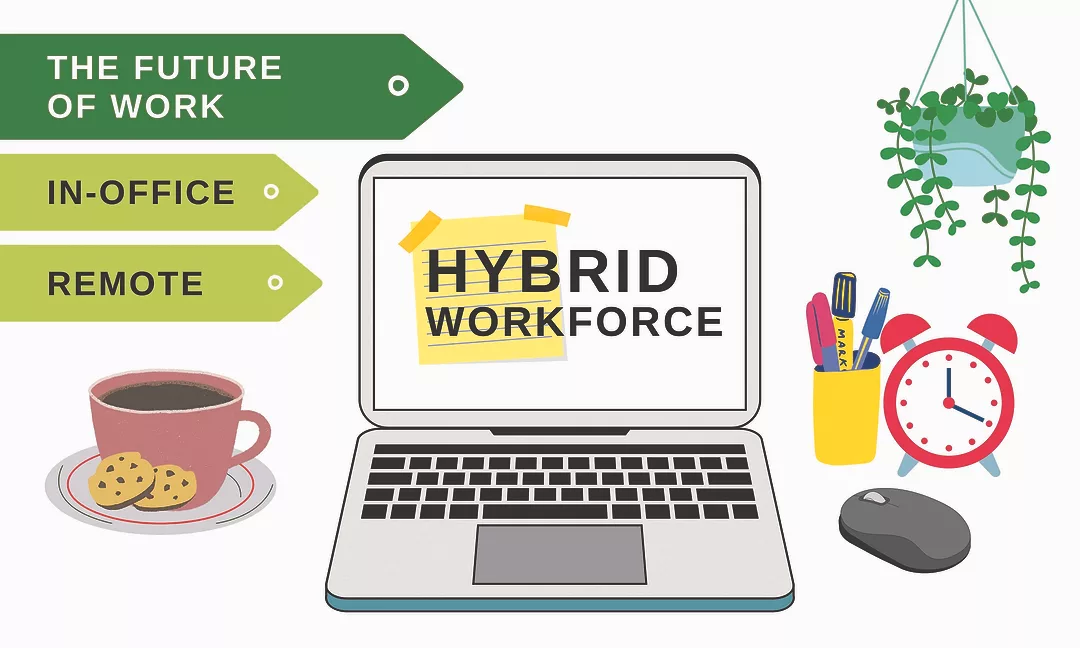I was speaking with a couple of separate clients a couple of months ago, and the subject of remote work and workplace expectations came up in both conversations. In one of the conversations, I was speaking with the owner of the business; she was struggling with the idea of remote workers. This wasn’t the way she grew up in the business, and she isn’t comfortable with this dynamic we have been living under for the past couple of years.
In the second conversation, I was speaking with a department head who was struggling with an owner who was clearly against the concept of remote work and barely made accommodations during the height of the pandemic. He is clearly in the “this is a passing fad” camp and sees no reason to recognize the changing dynamic of work.
In both situations, the work environment is being challenged by owners who fail to see the writing on the wall. Remote work will be a part of your future; you might as well get used to it.
This isn’t a recent phenomenon, and we can’t blame it all on the millennials. They are the easy scapegoats here. We love to bash millennials for bucking the traditions of the past, being lazy, entitled, etc. However, if we really examine the folks who benefit most from a remote environment, it’s those of us from the Generation X vintage.
We are the fiercely independent ones who hate to punch a clock and prefer the flexibility of a nontraditional work environment. Gen X workers tend to thrive in a nonmonitored environment.
Where some of the conflict may occur is what we know about the collaborative needs of the millennial worker. Zoom may bridge this gap, but it is a poor substitute for face-to-face interaction and mentoring. This generation was never built to be self-starters, so it is fair to be concerned about their ability to work remotely. I am not saying that an independent environment should be reserved for Gen Xers, but a millennial worker must demonstrate the ability to work independently before this privilege is granted.
Like it or not, we are moving to a decentralized work environment. The COVID-19 pandemic, for all its upheaval, taught us that many functions in our organizations could be performed away from the traditional office environment. Technology was already in place to allow us to do this, but many of us had just discovered the functionality.
More Remote Work Fears
Besides the fear of productivity, there are several other barriers preventing business owners from embracing a remote work concept. If I can’t see them, how do I know they are working? This mentality demonstrates a clear lack of trust and relationship with the workforce. When management fails to connect with their team members, trust breaks down. I would challenge the communication skills of any manager who fears working with a remote team member.
Because they only know one way to convey expectations, the potential to lead a nonpremise-based employee is unsettling. Too many managers allow ego to creep into their communication style. Successful leaders understand that it is not about the employee learning how to interpret direction. Conversely, it is the leader’s responsibility to learn how to communicate their expectations in a way the employee can absorb the direction.
I hear the “culture” argument being thrown around when trying to defeat the remote work scenario. Again, this is a fear-based argument. Remote work will not kill your company culture. Was it really that fragile to begin with? Culture is not built by people working in cubes and passing each other in the hallway. Culture thrives when the associates take pride in the organization.
Employee satisfaction is a huge driver of culture. When associates’ needs are being met and they feel heard, culture thrives. For some, the ability to work remotely has greatly enhanced their personal well-being and life balance. The ability to do valuable work, earn a decent living and wear pajamas all day can drive employee satisfaction. Who cares if they don’t dress up, drive to the office and ride the desk? It’s about the results, not the path, right?
Some of the roles in the organization are not eligible for remote work. Operational teams and customer-facing roles need to be on-premise. Someone has to work in the warehouse, operate the counter and deliver the product.
This is where I see the “fairness” argument pop up. If this set of employees is required to be in the office, then it isn’t fair that we let certain roles work from home? Do I have to remind everyone that life isn’t fair? Not all roles are created equal. Do we have a flat pay rate for all employees? Of course not. However, wouldn’t that be fair?
I know I am going a bit far here, but the whole argument that everyone should come to the office because some are required is weak at best. I believe that it’s really a mask for senior management’s inability to figure out how to get past their own fears associated with the decentralized work model.
When You Own the Dirt
Since I am digging at the ego a bit, I want to throw out one of the barriers that I believe has a lot to do with the reluctance to embrace a remote work policy — property ownership. Queue the hate mail. Many owners of distributorships own the real estate that houses the locations in a separate holding company. It is very common to have a mix of leased and owned properties. Don’t get me wrong; this is a solid wealth-building strategy for the owner; however, it can lead to poor decision-making.
My father, who owned some properties, was very frank about this. He knew that he stayed in a location way past the point of bursting at the seams because he owned the dirt. The corporate argument that the company will save money on office space when they allow remote work doesn’t resonate with the private building owner. They aren’t going to be saving themselves anything. If they allow remote work, they may feel foolish retaining a facility that only houses corporate staff.
Beyond associate satisfaction, there is another silver lining to the great shift to remote work — recruiting. As I was discussing with a client, she is no longer bound to recruiting people within driving distance. Without this natural barrier, her candidate set just multiplied.
So many talented people have chosen to live in a place that fits their lifestyle. I live in a place like this. Frankly, those who relocated here during the pandemic are the most eager to be productive. Their goal is to make a living in a place of their choosing. Are they really going to jeopardize it by slacking off? I don’t think so.
Those of you still struggling with this change of work environment have two choices: adapt or die. OK, it’s not that dramatic. You can find peace with this new decentralized work environment, or you can hang up the cleats. Quit trying to push the boulder uphill. The struggle and angst in your company will distract you from the really important things, such as making a profit and crushing the competition.
This is not a hill you want to die on, and you might find that your people will rise to the occasion. Good luck, and know that I am always here to help.






